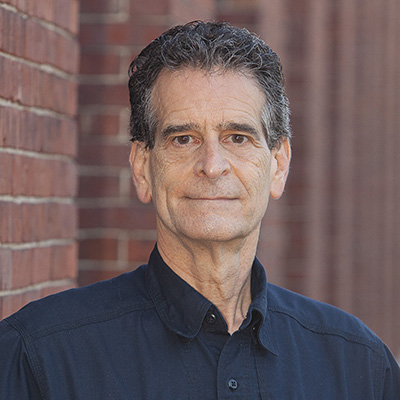
Dean Kamen doesn’t just build devices. He builds futures. From his early days conjuring up machines that turned heads—quite literally, if you recall the Segway—to his current mission in regenerative medicine, Kamen has always walked a line between science and sorcery. Now, as he stands at the threshold of yet another revolution, he’s applying the logic of mass manufacturing to the delicate task of growing human tissues and organs—daring us to imagine a world where the assembly line meets the cell. At SynBioBeta 2025, Kamen is set to discuss how synthetic biology can transform medical treatments and enhance vaccine production.
Kamen first made waves with the Segway, a two-wheeled personal transporter that captured imaginations long before “micro-mobility” was the buzz of the day. His forward-looking innovations, from the iBOT stair-climbing wheelchair to founding FIRST (For Inspiration and Recognition of Science and Technology) robotics competitions, have always revolved around a single principle: solve persistent problems by rethinking the infrastructure that supports them.

Kamen's journey into regenerative medicine began with establishing the Advanced Regenerative Manufacturing Institute (ARMI) in 2017. ARMI's mission is to develop large-scale manufacturing processes for engineered tissues, addressing the critical shortage of organs for transplantation. By leveraging principles of synthetic biology, Kamen envisions a future where creating functional human tissues becomes as standardized as manufacturing medical devices.
Central to ARMI's efforts is the development of a "tissue foundry," a prototype system designed to mass-produce cells suitable for clinical trials. This innovation aims to accelerate the path from laboratory research to real-world medical applications, potentially offering solutions for patients awaiting organ transplants. Kamen's work exemplifies the convergence of engineering and biology, highlighting the transformative potential of synthetic biology in regenerative medicine.
At SynBioBeta 2025, Kamen will look to share insights into the challenges and opportunities in biofabrication. His presentation will likely emphasize the importance of interdisciplinary collaboration and the need for scalable manufacturing techniques in bringing regenerative therapies to market. Attendees can anticipate a compelling discussion on how synthetic biology is poised to redefine the landscape of healthcare and human longevity.
Dean Kamen's pioneering work serves as a testament to the power of innovation in addressing complex medical challenges. By harnessing the tools of synthetic biology, he is paving the way for a future where regenerative medicine becomes a practical reality, offering hope to millions worldwide.

Dean Kamen doesn’t just build devices. He builds futures. From his early days conjuring up machines that turned heads—quite literally, if you recall the Segway—to his current mission in regenerative medicine, Kamen has always walked a line between science and sorcery. Now, as he stands at the threshold of yet another revolution, he’s applying the logic of mass manufacturing to the delicate task of growing human tissues and organs—daring us to imagine a world where the assembly line meets the cell. At SynBioBeta 2025, Kamen is set to discuss how synthetic biology can transform medical treatments and enhance vaccine production.
Kamen first made waves with the Segway, a two-wheeled personal transporter that captured imaginations long before “micro-mobility” was the buzz of the day. His forward-looking innovations, from the iBOT stair-climbing wheelchair to founding FIRST (For Inspiration and Recognition of Science and Technology) robotics competitions, have always revolved around a single principle: solve persistent problems by rethinking the infrastructure that supports them.

Kamen's journey into regenerative medicine began with establishing the Advanced Regenerative Manufacturing Institute (ARMI) in 2017. ARMI's mission is to develop large-scale manufacturing processes for engineered tissues, addressing the critical shortage of organs for transplantation. By leveraging principles of synthetic biology, Kamen envisions a future where creating functional human tissues becomes as standardized as manufacturing medical devices.
Central to ARMI's efforts is the development of a "tissue foundry," a prototype system designed to mass-produce cells suitable for clinical trials. This innovation aims to accelerate the path from laboratory research to real-world medical applications, potentially offering solutions for patients awaiting organ transplants. Kamen's work exemplifies the convergence of engineering and biology, highlighting the transformative potential of synthetic biology in regenerative medicine.
At SynBioBeta 2025, Kamen will look to share insights into the challenges and opportunities in biofabrication. His presentation will likely emphasize the importance of interdisciplinary collaboration and the need for scalable manufacturing techniques in bringing regenerative therapies to market. Attendees can anticipate a compelling discussion on how synthetic biology is poised to redefine the landscape of healthcare and human longevity.
Dean Kamen's pioneering work serves as a testament to the power of innovation in addressing complex medical challenges. By harnessing the tools of synthetic biology, he is paving the way for a future where regenerative medicine becomes a practical reality, offering hope to millions worldwide.